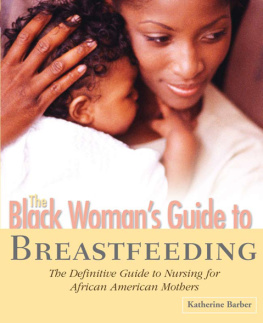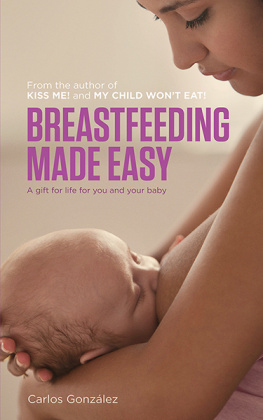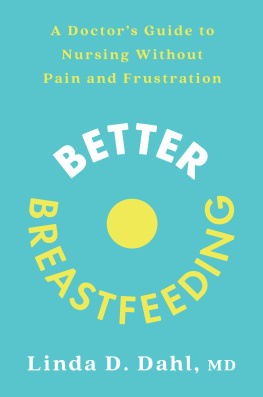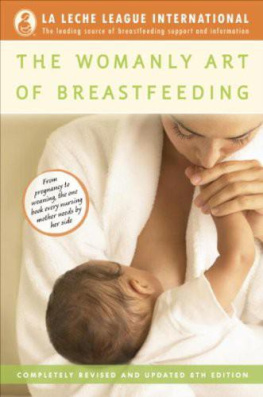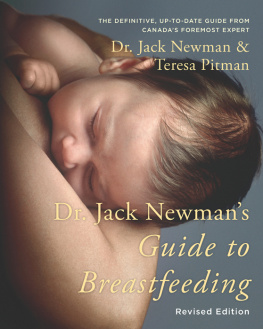Copyright 2005 by Kathi Barber
Cover and internal design 2005 by Sourcebooks, Inc.
Cover photo Corbis
Internal photos Siobhan O'Brien Budnitz
Drawings reproduced with permission 1980, 1999 Kittie Frantz (www.geddesproduction.com)
Sourcebooks and the colophon are registered trademarks of Sourcebooks, Inc.
All rights reserved. No part of this book may be reproduced in any form or by any electronic or mechanical means including information storage and retrieval systemsexcept in the case of brief quotations embodied in critical articles or reviewswithout permission in writing from its publisher, Sourcebooks, Inc.
This publication is designed to provide accurate and authoritative information in regard to the subject matter covered. It is sold with the understanding that the publisher is not engaged in rendering legal, accounting, or other professional service. If legal advice or other expert assistance is required, the services of a competent professional person should be sought. From a Declaration of Principles Jointly Adopted by a Committee of the American Bar Association and a Committee of Publishers and Associations
This book is not intended as a substitute for medical advice from a qualified physician. The intent of this book is to provide accurate general information in regard to the subject matter covered. If medical advice or other expert help is needed, the services of an appropriate medical professional should be sought.
All brand names and product names used in this book are trademarks, registered trademarks, or trade names of their respective holders. Sourcebooks, Inc., is not associated with any product or vendor in this book.
Published by Sourcebooks, Inc.
P.O. Box 4410, Naperville, Illinois 60567-4410
(630) 961-3900
FAX: (630) 961-2168
www.sourcebooks.com
Library of Congress Cataloging-in-Publication Data
Barber, Kathi.
The Black woman's guide to breastfeeding : the definitive guide to nursing for African American mothers / Kathi Barber.
p. cm.
ISBN-13: 978-1-4022-0345-9
ISBN-10: 1-4022-0345-4
1. BreastfeedingPopular works. 2. BreastfeedingUnited States. 3. African American mothers. I. Title.
RJ216.B27 2005
649'.33dc22
2005025004
Printed and bound in the United States of America
DP 10 9 8 7 6 5 4 3 2 1
Dedication
I would like to dedicate this book to God, who gave me the vision to help my fellow African American sisters reconnect with our breastfeeding tradition.
I would also like to dedicate this book to my husband, Noel, for his love, support, and patience with my breastfeeding passion. To my angels sent from heaven, Amyhr and Jayde, whom I breastfed with ease and with deep devotion and love.
To my mother, whom I admire for her ability to overcome any challenge with optimism and beauty. To my sister, who is the most beautiful young woman I know. To my grandma, Kat, who breastfed her four children. To Willie and Shirley, for giving birth to my husband, and for their love. To my dad, I love you.
To anyone out there supporting Black women in their breastfeeding experience, I personally thank you. Finally, I dedicate this to all my Black sisters who choose to breastfeed and experience incomparable love for their babies, who find power and confidence within the breastfeeding journey.
Acknowledgments
Special thanks to Kristen Auclair, my agent, and Deb Werksman, my editor at Sourcebooks, for giving me a chance and for making this dream a reality. Thank you to my sisters, whose inner beauty shines vibrantly, and whose support during my journey to help Black women breastfeed is immeasurable Kim D.J., Michelle M., Michelle B., Dawn D.C., Desiree E.J., Jenise F.N., Inga T.S. (where are you?), Yvonne F., Mishawn Purnell-O'Neal, and countless others. To Beverly Spencer, who trained me, believed in me, and pointed me in all the right directions.
To my idol, Dr. Michal Young, whose advice, wit, skill, and spirit are legendary. To my breastfeeding role model, Marki Dickens, who successfully breastfed four beautiful children, and who showed me that Black women do breastfeed.
To those in the breastfeeding field who work daily to make a difference for breastfeeding mothers: to Dr. Jack Newman, for the use of his expert handouts; Kittie Frantz, for the illustrations; Karen Peters, for the use of Yellow Flags/Red Flags; INFACT Canada for the use of the risks of infant formula; the Breastfeeding Coalition of Washington/Healthy Mothers Healthy Babies Washington for the Use of the Dear Employer letter; and for the information on breastfeeding legislation and the International Labor Organization provided by the National Conference of State Legislatures and Congresswoman Carolyn B. Maloney.
To two special friends, Resheda Hagen of Lansinoh and Peggy O'Mara of Mothering magazine, whose advice and warmth is soothing to the soul.
Letter to the Reader
Dear Reader,
I first met Katherine Barber in New Jersey at an April 2001 conference, Nutrition, Breastfeeding, and Cultural Competency: Eliminating Racial Disparities in Health. We were both at this conference to speak in support of increasing breastfeeding rates, especially in the African American community. I did not get to hear her presentation, as it was later in the conference and I was only in and out for one day. However, she had a display up encouraging women to join the African American Breastfeeding Alliance. I was excited. Finally, someone had stepped into that space of vision and leadership and had taken on that daunting responsibility: tackling social forces and naysayers to tell African American women to put down that artificial milk and go back to breastfeeding.
African Americans were the last community to succumb to the subversion of the breastfeeding tradition. This lack of awareness about the benefits of human milk for human beings is truly killing us as a people. Breastfeeding not only provides optimum nutrition, but it is also a species-specific, dynamic immunological update that helps prevent colds, ear infections, pneumonia, and diarrhea in infants and children. In addition, a number of the chronic illnesses that plague us as we agethat are currently ravaging the African American communityappear to be directly related to having not been breastfed (i.e., asthma, type 1 and type 2 diabetes, hypertension, Crohn's disease, acute lymphocytic leukemia, and lymphoma). Women who do not breastfeed not only deprive their babies of good health, but they also increase their own risk for premenopausal breast cancer, epithelial ovarian cancer, and osteoporosis.
Kathi was enthusiastic and committed, brimming with the confidence that would be necessary to get the attention of women of color. She asked me if I was interested in joining the mission to make a difference. I was so honored. Finally, someone who was as interested in changing the minds of African American people about breastfeeding as I was, and moreshe was willing to take that awesome step to lead. It continues to be a pleasure and an honor to work with her. She continues to lead. Sometimes this puts her in conflict with others in the breastfeeding community, who are largely our white sisters. They were initially confused, and I think sometimes not understanding that African American people need African American images and a different approach if we are to be reached. This was not a rejection of their commitment, but a need to broaden their perspectives. This process is a work in progress.
It comes as no surprise that Kathi is moving to commit to words the fire that burns inside of her; to tell African Americans that it is absolutely necessary for us to recognize that affordable and attainable health care begins with breastfeeding.
That message simply must be heard. Kathi has much to saylisten.
Next page
